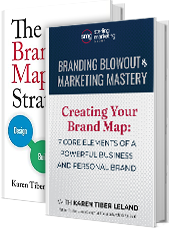Summary:
Yelena Dudochkin, a renowned soprano, discusses the transformative power of classical music in her podcast interview. From her operatic roles in Eugene Onegin to La Traviata, she shares her journey and passion for opera. Dudochkin advocates for classical music’s accessibility, its role in healing, and its potential to connect people across cultures. With upcoming projects like her album release, she aims to spread classical music’s impact globally and challenge its elitist reputation, emphasizing its relevance in today’s society.
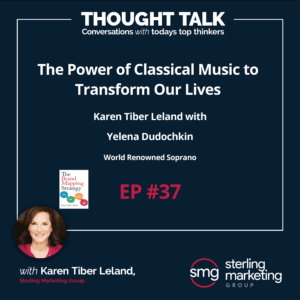
Listen to the podcast on iTunes
The Power of Classical Music to Transform Our Lives
My guest is Yelena Dudochkin. She is a world renowned soprano who has had major roles and performances in such operas as Eugene Onegin, La Traviata and Rigoletto, among others. Yelena, welcome.
Thank you so much, Karen.
I was at a conference and I was there before it got started. I saw this woman go up to the front of the room and there was musicians behind her and she opened her mouth and started singing. I was in a conversation with someone. My head immediately whipped to the side and I was like, “Who is that?” It was you.
Everything had been a little bit pushed back as always. We were warming up as people were coming. We were trying to do it all halfway.
You were warming up and I thought, “That’s her warm-up?” I found out you were in it and it made sense to me. What made you choose to become a classical opera singer?
It’s the most powerful way to make music and the most all-encompassing way to perform. It takes skill, mastery, emotional sensitivity, and intelligence to be able to give people that gift of a transformative experience. It’s the intensity to performing classical music because it takes so much skill, concentration, and giving your whole energy that makes it rewarding. Sometimes people ask me, “Why do you insist on singing and continuing in classical music?” Selfishly, it’s the most intense performance experience that you can have as a performer that you can give to someone who’s listening.
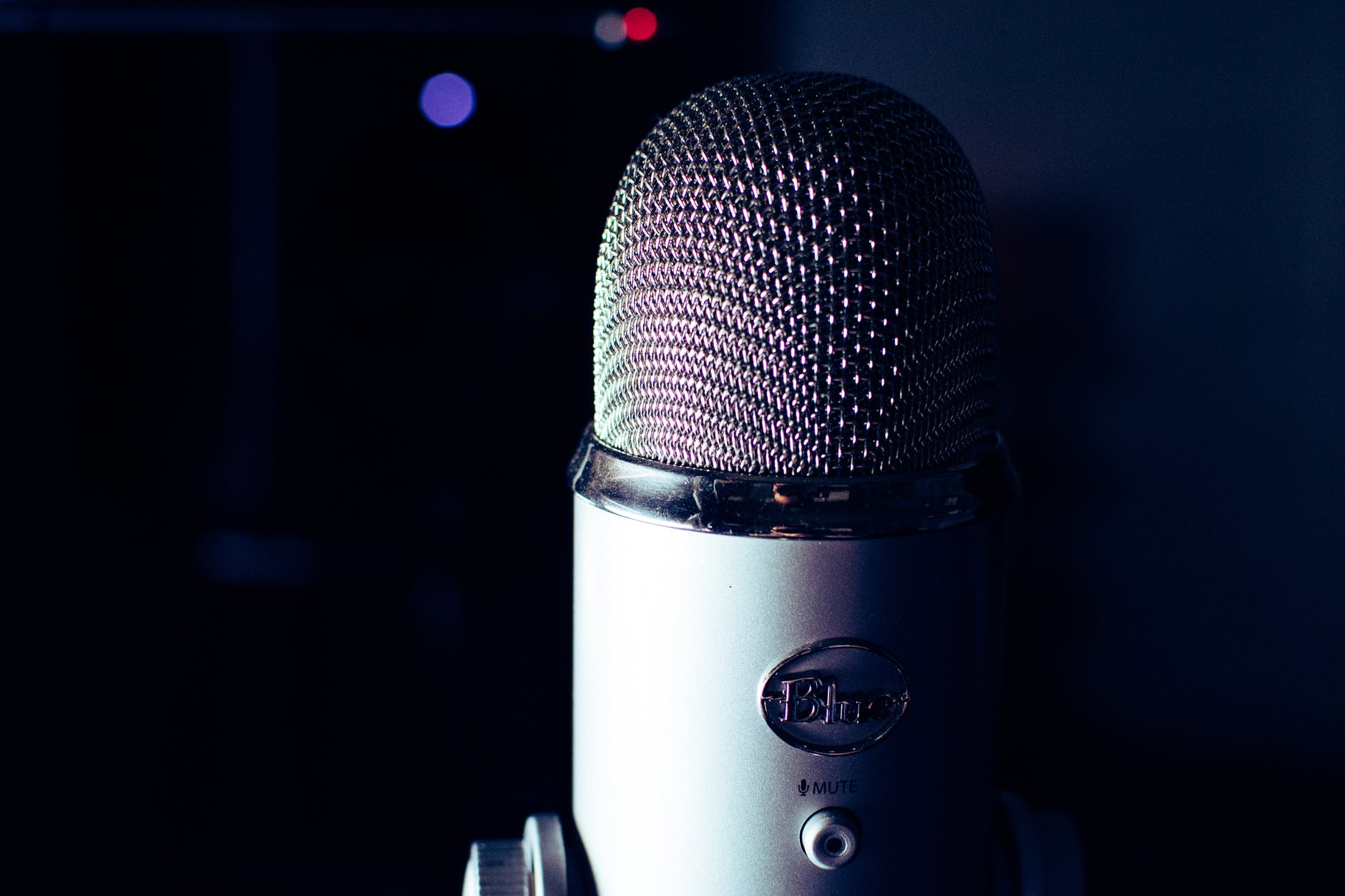
Knowing that you’ve helped someone experienced the heightened emotional and spiritual states or taking them out of the ordinary and help them to experience something truly extraordinary is rewarding. Sometimes people tell me I took them back to their childhood or helped them heal from a loss. It’s amazing the power that music can have on people. It’s also a spiritual experience as well. I’d like to think that I’m bringing people closer to their humanity and making them believe there’s something better and greater than their current state or their current life. Contributing to people’s lives like that is truly a gift to me. It makes me feel that I’m doing something meaningful.
How did you end up being an opera singer? What’s the path you took to being an opera singer? They asked some kids, “What do you want to be?” and they say, “I want to be a lawyer.” Did you say, “I want to be an opera singer?”
I grew up in a music household. My mom’s a concert pianist and I was always doing my homework at the Kiev Conservatory back in Ukraine. I started off with a piano when I was three years old and maybe even a little younger. There are some pictures of me when I was baby there sitting up. I always sang but piano is something that was a serious instrument that I studied and won competitions in and everything. It’s something that I’ve always enjoyed doing. It was until college that I decided to switch instruments and become an opera singer. The reason why I truly love it is because it’s such an all-encompassing experience. Your body is your instrument. You can be truly expressive and become a different character and deliver a message that you can’t do in any other instrument. It’s the power of the human voice that’s engaging and captivating.
You grew up in Kiev in the Ukraine, the former Soviet Union, correct?
Yes, that’s right.
When did you immigrate to the US?
It was after the collapse of the Soviet Union. I was a refugee going through the process. It was one of those interesting moments in life where everything changes radically and you come for the American dream and you’ll end up living and fulfilling that dream by being the best that you can be. In my case, I was driven to engage with the country, with everything that I could do in gratitude for my parents too for bringing me here. I ended up getting into the best university that I could, Columbia and Juilliard School, and I did my studies there, piano, political science, voice. I went on from there to all these great internships that I was lucky to receive at the United Nations, the Soros Foundation, and embraced the possibilities and see the American dream that ultimately ended up making me into who I am today.
[Tweet “Jazz requires skills and knowledge of harmony as a background.”]
How old were you when you immigrated to the US?
I was nine.
You obviously studied here because you went to Juilliard and Columbia. Did you study classical music in Kiev as well?
Yes, I did. I followed the then Soviet protocol of have your kids audition for everything that they can. Being a ballerina as well when I was three, I remember going to the ballet studio and they decided my body type was not the ballet body type, a little too shapely even as a three year old. When I came hereto United States I could take ballet classes. I did the Boston Ballet School and I did Broadway Dance and all these great things that you then make you good performing artist. In the Soviet style, it was determined that I was a good musician. I was able to enter the Kiev Music School, the Center of Kiev Music School which was attached to the conservatory. I started my studies young and my mom taught me since I was a little girl.
You also sing jazz. How did you make that transition from classical music or how did you get interested in singing jazz?
It’s not a transition. It’s something I do in addition to classical and opera and I always take opera and classical music as my central core practice. The jazz singing is something that I’ve always, since college, done on the side but also now more and more central side. While I love to sing opera, I love the freedom of Jazz. It requires skills and knowledge of harmony as a background. It’s the music I can sing after I have a glass of wine, relax, and play with my friends. It’s the freedom to improvise and to make any kinds of sounds that you want. It’s liberating and it’s a great thing to be able to do in addition to classical. It informs the classical and even early classical music where singers had to improvise in a different style.
As a classical singer, it’s especially fun because there’s a lot that I can do with my voice and there are few rules to follow except harmony and etiquette. When I sing Summertime by Gershwin, who’s a classical American composer, I always love blending the classical sound with jazz improvisation. It’s fun blending the jazz technique and the classical ability and do something different each time, depending on the moment and what inspires. I’ve been planning on recording an album of collaborating with some of my wonderful colleagues at Berklee College of Music, who are also both classically trained and jazz trained where we can find a combination that’s particularly powerful. We draw on both techniques, allowing us to adapt to whatever mood strikes and the style and the dynamic of the moments and the environment.
How do you feel that your role as a singer has translated into your vision for transformation, and what is your vision for transformation?
As a singer, I can help people experience the power of music anytime and anywhere. I love incorporating performing arias into my talks and being able to demonstrate the power of music to get people excited, to move them, and for them to feel the transformation taking place. You probably remember the famous scene from Pretty Woman that I mentioned in my talk, with Julia Roberts where she’s a hooker and she gets picked up by a business tycoon and they start to develop relationship. He flies her to the opera and dresses her in this gorgeous red dress and necklace and tells her that the opera is very powerful, that people’s first reactions to it are very strong, and that it affects people’s soul. They play the scene from Act II of La Traviata where Violetta sings Amami Alfredo or Love Me, Alfredo. This is an aria that I sing in my talk.
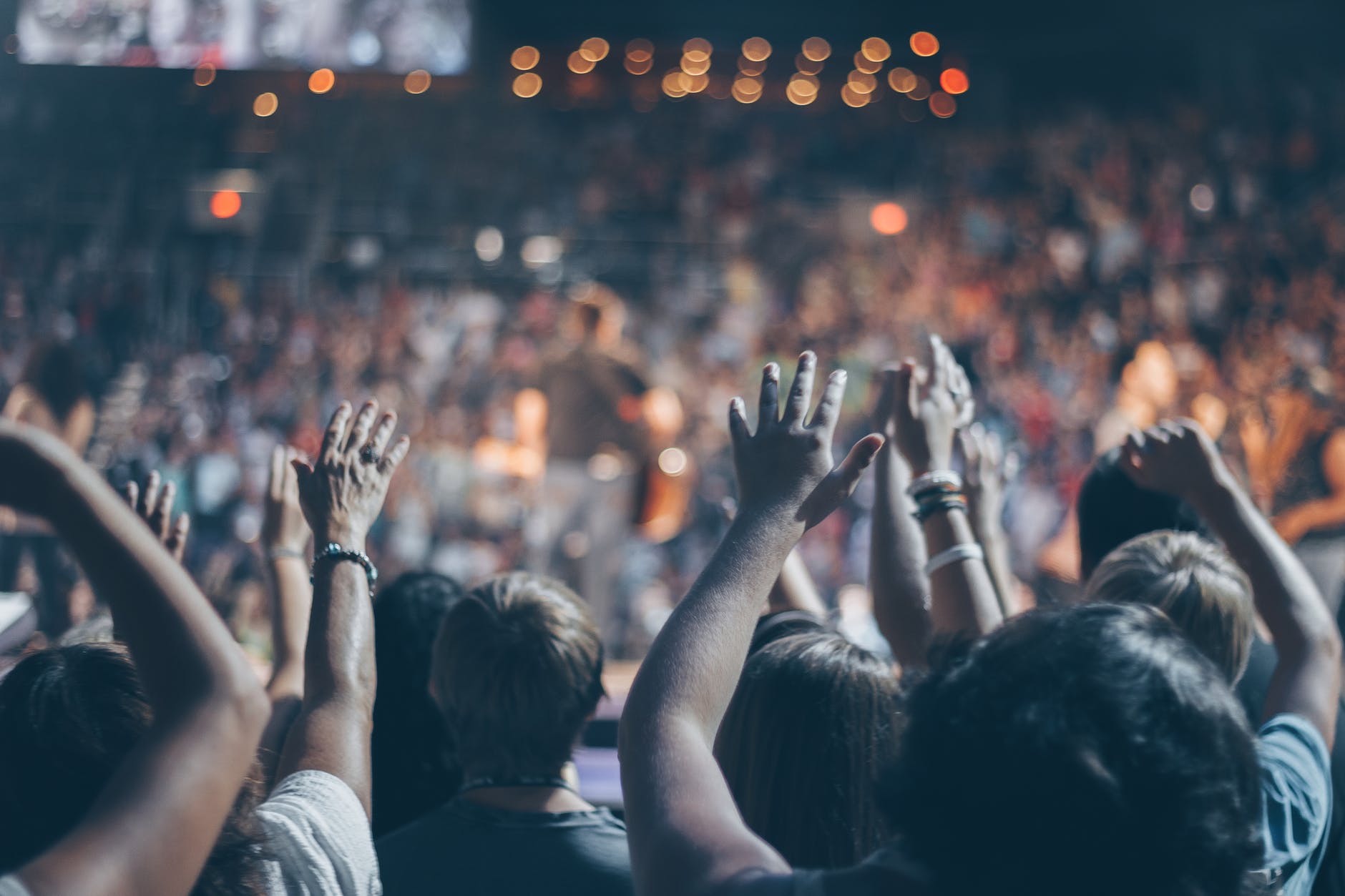
After doing that, it’s a really interesting experience for me to see the audience reaction because it’s very similar to Julia Roberts’ reaction because the character is moved. In her case, she’s moved to tears. Hopefully, I can move people to tears as well even for 30 seconds. She realizes her hopes and dreams vividly expressed in this music in La Traviata. Even though she doesn’t understand Italian or the context, she can’t even compare a story to a situation, but the emotion carried by the music transcends everything and goes directly to her core.
Talk a little bit about the talks that you give, where you give them and what they’re about, etc.?
What I like to do is raise awareness everywhere, especially among the world and industry leaders and to build mind share. It’s one of my most important initiatives. I was fortunate this year to perform at the World Economic Forum at Davos where world leaders gather and contemplate the state of the world and set goals for the future. As the world progresses through the fourth industrial revolution, culture has emerged as an exceptionally important but sensitive aspect of our society. What I seek to do is build and foster the growth of culture, particularly music, as we continue to evolve our society. Engaging globally in important discussions following my performance is a great way to make people aware, to make great leaders and all of the audience aware of what we need to do to make sure we ensure enrichment and preservation of culture and in turn, humanity. I’ll be giving a series of these performance talks, some podcasts and discussions on the subject, not just to raise awareness but to truly drive change. I’m excited to have the opportunity to reach abroad audience this way, of tens of thousands of people who might otherwise not hear classical music or live classical music in particular. Hopefully, they will then appreciate the importance of classical music in our society.
What do you think is the role of music today?
The role of music today is not very different than it always has been, an international language that unites everyone. It transcends cultural differences, gender differences, age and economic differences. It’s for everyone. The role of music today can be even more amazing because music is available to everyone and everywhere. It’s a question of making people aware and bringing them into the fold of classical music and dispelling it’s elitist attitude which has emerged as such in the last 40 years because of the industry, the way that it’s run and the way that it’s structured.
You’re talking about the role of music but a lot of our audiences, business owners, entrepreneurs or people that work in corporations, do you think there’s a place for music in corporate America and in business today? What do you think that place or that role is?
I talked to a lot of people who are in different industries, including the technology industry and people who are in leadership roles there. They say that when they are gathering together for large events and conferences, when they take a moment to pause and listen to classical music, their mind is cleansed, their head is clear, and their thoughts are crystallized. They can think in a different plane than they were thinking previously. We have so much information thrown at us. We have many directions that we’re pulled into, so many distractions. Hearing a brief classical music performance, particularly when it’s live, if it’s in a conference setting but also when it’s playing as part of a presentation, it’s almost like a meditation. It has a reset button on people.
There was also a medical reason why music has amazing power to get people to be more productive. There’s a book called Scales to Scalpels that was written by Lisa Wong from Longwood Symphony Orchestra. She talks about the recovery of stroke victims and their ability to speak by singing, dementia patients regaining some of their memories through hearing music, and how they hope to one day be able to prescribe Bach or Haydn the way they prescribe amoxicillin or Ambien. Classical music has the power to heal, but also has the power to develop brain activity and increase productivity. Maybe you’ve heard of the Mozart Effect or the studies about that?
[Tweet “Classical music has the power to heal but also has the power to develop brain activity and increase productivity.”]
No, I’d love to hear it.
There are studies that show that even cows produce more milk when they’re listening to Mozart. There are a lot of studies about playing Mozart in particular, because the study was done with the music of Mozart. I’m sure Bach and other similar classical Viennese composers fit into the sound as well. Playing music to an unborn child during pregnancy and early on in the nursery stimulates the brain development and help to have neurological pathways form in the brain. It’s extremely positive and enhancing to humans and animals and also recovering crime victims and people who have committed crimes. There are some programs that help rehabilitate people who’ve gone through prison and help them to find themselves again, help them to quiet their mind, and help them to not only quiet their mind but engage with a better mental state into their everyday lives. It’s a powerful effect that can help everyone from cows to babies to corporate America.
I know you have a big mission about saving classical music and I have to say I didn’t realize classical music was in danger. What are you doing or how do you think we need to save it?
The danger is in the current environment we have, there is a diminished funding, but that’s not the biggest problem that classical music is facing. There is a perception that classical music and opera are for the 1% and that’s simply not true. It’s always been for the people and by the people. It’s always been as popular and rambunctious concert experience for everyone in the times of Beethoven leading up to Verity. It wasn’t until recently that people or the industry have started to make it elitist founding. There’s a lot of change in the music industry that needs to take place to help shift this perception and also to reengage with the audience. There are a lot of choices being made by major orchestras, major opera houses and smaller opera houses out of confusion of what to do. How do they win back the audience? How do they get new audience? These productions unfortunately become more alienating to the audience rather than reengaging. It’s a situation that needs to be addressed.
How do you see music as being transformative?
The magic of classical music and opera cuts across all differences and all language barriers. Classical music and opera are just essential to all people, countries, communities, not just for the elite 1%.Music can heal on a clinical level better than medicine. Today, we’re experiencing a rapid shift in our society with the emergence of this fourth industrial revolution which has many benefits but also brings a virtual and digital lifestyle that challenges our society. We risk losing touch with ourselves. Music can help us to connect with ourselves and connect with each other. When we experience classical music together in a live performance environment, we engage in our deepest self. We connect to each other in this experience and we reengage with the world.
We need to shape how this culture, how our humanity, how our core, will be defined in our modern era and how it will evolve going forward. We need to bring classical music back into the fabric of our society to do this effectively. My work is to bring together innovation across industries and to reinvigorate classical music and opera the way it’s presented, the way it’s performed and marketed. I’m leading an effort to restore classical music to where it should be and to eliminate this elitist reputation, to expand this appreciation and engagement, and to make available all of its benefits for all.
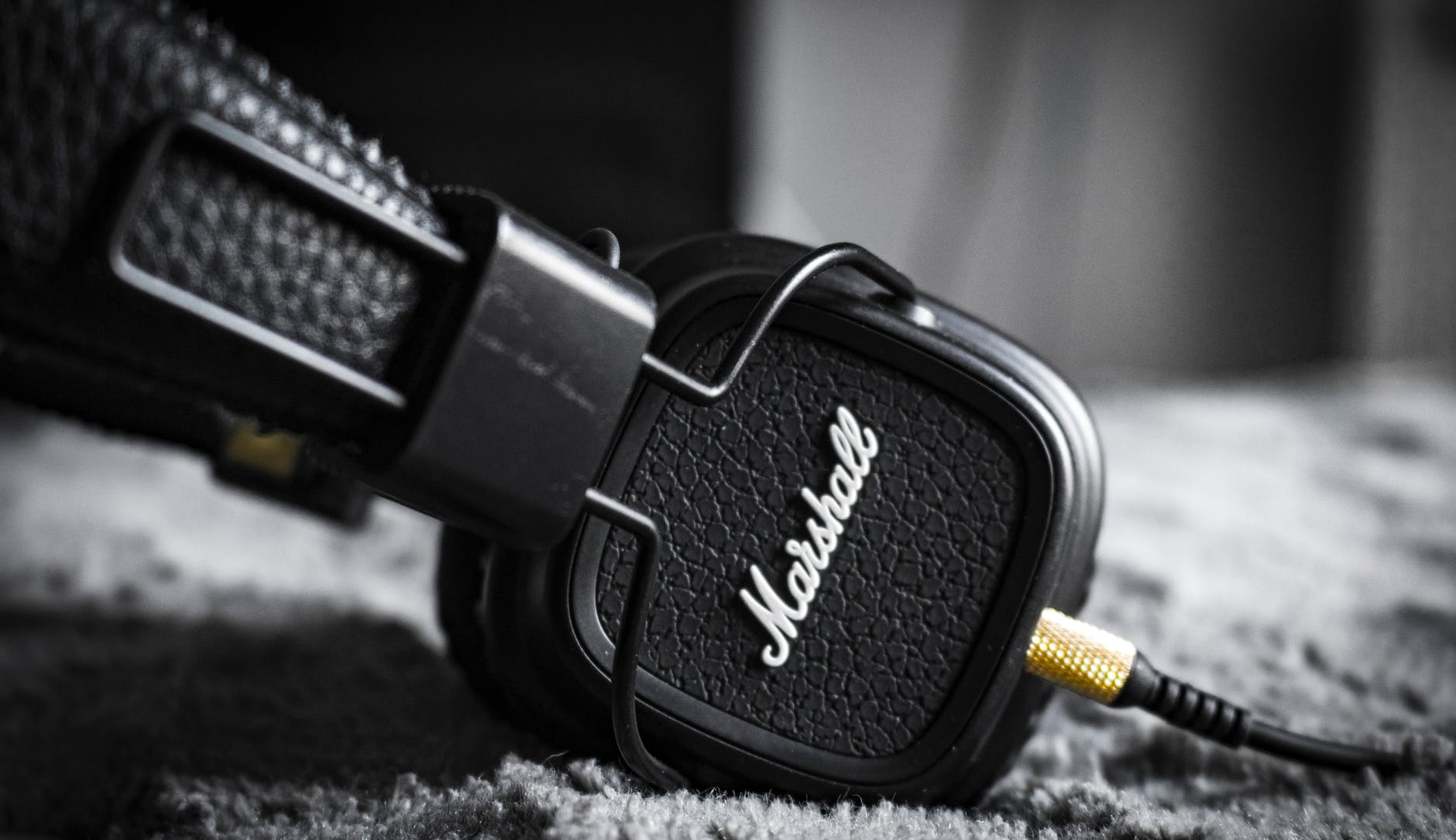
.
Do you think one of the barriers to that has been cost? I’m a huge fan of opera but it is not inexpensive to go to the opera or a symphony.
Having gone to school in New York City where everything is expensive, the Philharmonic is expensive and the opera, there actually are really cheap tickets always available. It’s a question of what you’re looking for. There are a lot of programs that help bring people into the fold, whether it’s free performances in the afternoon or whether it’s even opera in HD which is the cost of a movie ticket. You can get standing room seats for something like $25 or less at the Met. The big secret to those is you get to sit down if somebody doesn’t show up. It’s not as cost prohibitive as all that and beyond the level A houses like this. The community theaters of which there are so many make opera much more accessible than people think. There is a perception that it is expensive.
There is a need to create free large scale concert place. In Boston we had Carmen on the Common where there was a live Carmen performance that was sold out. There is not a word you can say when you’re not selling seats, but it was completely full. There was no apple to drop. There was no room. In Europe, they do this a lot where they have large-scale performances where the front half of the auditorium is paying the ticket prices, and then there is a huge outdoor area where people can gather and have picnics and have their wine, their cheese, their tea, and enjoy all the performances and even talk during the performance. Changing the performance experience and the accessibility is key to bringing this back to the people and to where it should be.
There are some themes that we talk about in this podcast with every guest who’s on. One of the themes is what I call the joy of missing out. People have a huge fear of missing out in the world today. I always say that it’s about the joy of missing out rather than the fear of missing out. What is something that you think people have a fear of missing out on in regards to music and culture, particularly music, that in your opinion they shouldn’t? What should we have a joy of missing out on as it relates to music and classical music?
I’m thinking about it from the point of view of someone in the music industry and the simple answer is that people never start the conversation. There’s always something else going on. There’s always some other excuse and some distraction. The clarity of purposes exceptionally important. We owe it to ourselves to figure out what drives us and that which focuses and energizes you, what motivates you and what provides this particular sense of motivation. We have to clear our path as best as we can to pursue it. This is more complicated in the creative fields because people are inundated with reports of how hard it is to succeed, how difficult it is to produce beautiful music.It is hard, but it creates a fear in people about needing to do everything, which means they get distracted, their goal shifts, and in some cases, they never figure out what their goals are.
In the creative community, people are also told what they should and shouldn’t do. This is something that is an epidemic. We, as performing artists, are in many ways dependent on the director and dependent on their direction. We don’t have the opportunity to say, “This is not what we believe is the best way or the right thing to do.” This is a field that needs to evolve and allow for the real creative collaboration between artists, directors, and management, to deliver an amazing experience to the world. To bring people back, to bring people closer, and to work together on this is what we need to do.
[Tweet “Real artistic expression is born when we are ignited by strong emotion, a gut reaction to something that’s overwhelming.”]
One of the other themes on this is living beyond the script, that there’s this prevailing script of how you’re supposed to do things. There’s a prevailing script to creativity and artistic expression. For artists it’s one thing, but how do you see it in the work that every day people need to go beyond this script of what it is to be creative or to express yourself artistically?
The script today is the underfunding for the arts, whether it’s the reduction in revenue sources, the major changes in the recording industry, the contemporary composition styles of nice, positive or atonal debate, the structure of performances or the new production style. The mantra of the day is how hard it is to have impact. We need to change the model that exists because classical music is important to our humanity. This starts with outreach and appreciation, a startup with dialogue, a rebuilding of the audience and reminding people of its power. In an ideal world, we would also create new distribution model and the new financing model that would make this sustainable into the future. This is something I’m starting to work on.
Music is a fascinating combination of art and science. There’s some music that no matter what you do to it, no matter how you perform it, it’s going to impact people, it’s going to be great. That’s not always the case, and you can certainly learn a piece of music. They real artists are figuring out how to make the piece your own as an artist and how to figure out what this piece should be in the act of making it your own, simultaneously also making it everyone else’s, giving it to the world. Real artistic expression is born when we are ignited by strong emotion, a gut reaction to something that’s overwhelming. To be able to make someone else experience music or the experience of a character that’s being portrayed, first we have to, as performers, experience the depth of that emotion ourselves and it’s every aspect. Then we can become the sound that embodies this emotion and deliver that experience to the audience, to take them on a journey of that experience and have them be healed by having gone through this in a safe and beautiful space.
Creativity is a natural process by which we can achieve this artistic expression. When I work on a new piece of music, I always find the technical work is discovery work, deciphering and learning the pieces, what I would call the science of performing. This is the method to the madness. Once you’ve done all that work and layering each step of what you should do and be historically informed and all of that, we can tap into our personal and emotional world, where we can develop a valid interpretation of the piece, make it our own expression. That’s where we become real artists. It’s creating an incredibly smooth soft piano like Montserrat Caballé or Jessye Norman or having an unconventional human expressions like Maria Callas. These are all dimensions that great artists in the past have given us the tools that we can stand on as artists and strive for the ultimate expression of that piece that is current and real in its expression.
You have an album coming out.
Yes. I’m in the process of recording an album of vocally, which is a unique set of vocal music both from classical romantic and contemporary composers. One of which includes the Gliere Concerto for Coloratura, an orchestra which I just sang at Boston Premiere which is an extremely amazing piece and very difficult, which is why it’s not that performed often. It’s exciting to put together and pull together some of these pieces that are vocal leads for soprano in orchestra.
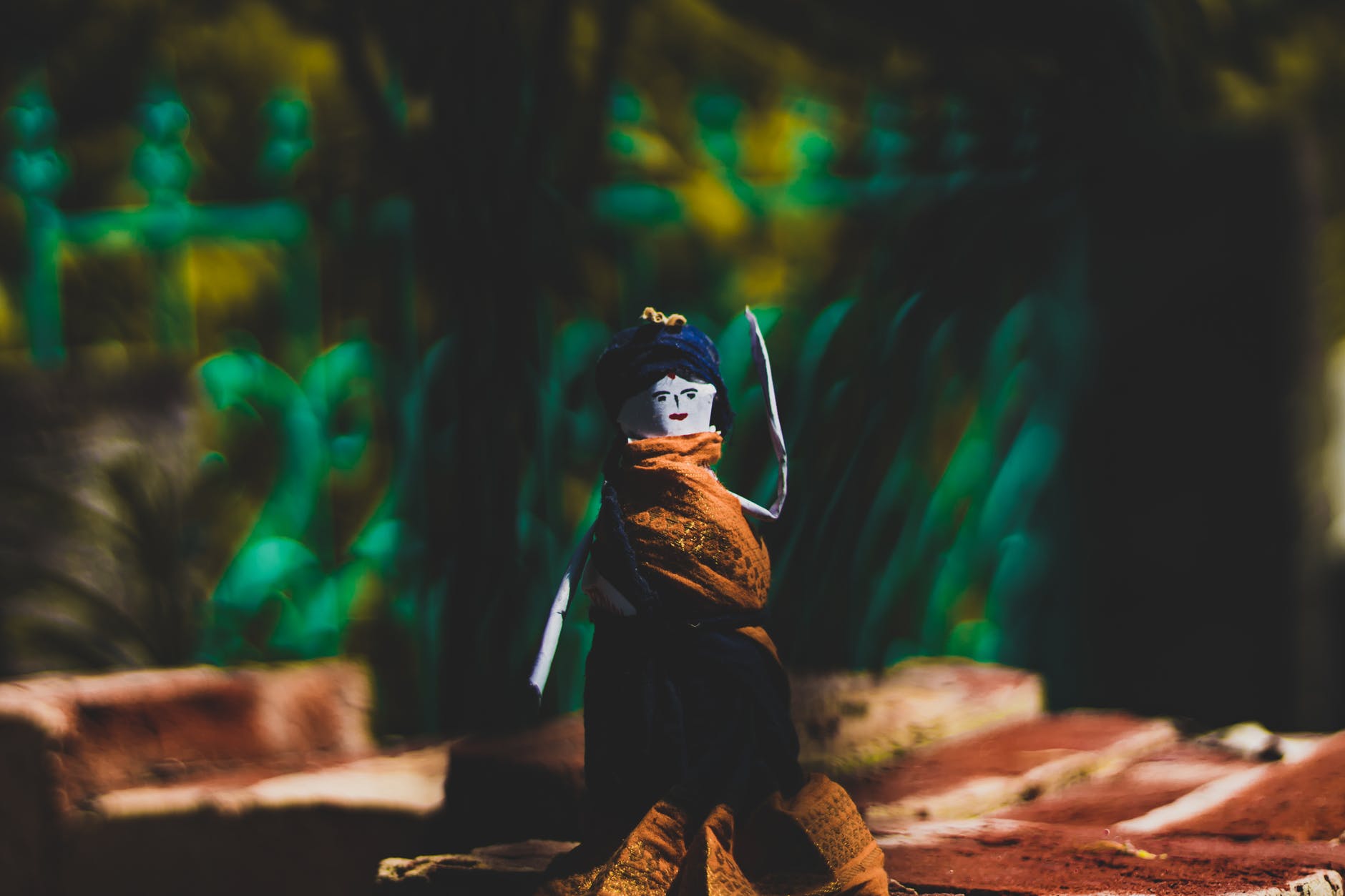
Where can people find out more about your singing, your work, your speaking and your mission for classical music?
I do have a website, YelenaDudochkin.com, which should be a good place for most of that information about the upcoming concerts, talks, Carnegie Hall and at Cannes Festival and more and more being added every day. I also have a little space where I talk about some of the impact I’m trying to make in the world as well. Certainly when the album is ready for release, that information will also be up on the website.
Thank you so much.
Thank you so much, Karen. It’s been a pleasure talking to you and going into all these great topics of our creativity and the power of music to impact our life.
My guest has been Yelena Dudochkin. She is a soprano who has had major roles in such performances as Eugene Onegin, La Traviata and Rigoletto, among others. She has a new recording coming out, and she spends her time traveling around the world speaking, singing and talking about classical music.
Important Links
- Yelena Dudochkin
- World Economic Forum
- Scales to Scalpels
- Jessye Norman
- Maria Callas
- YelenaDudochkin.com
About Yelena Dudochkin
 Yelena Dudochkin has captivated audiences across the world with her expressive stage presence, rich soprano voice, and powerful interpretations. Her operatic roles include Tatyana in Eugene Onegin, Violetta in La Traviata, Snow Maiden in Snow Maiden, Iolanta and Brigitta in Iolanta, Gilda in Rigoletto, Chernyafka in Magic Mirror, and Marfa in Tsar’s Bride, with Opera Boston, New Opera NYC, Commonwealth Lyric Theater, Opera Classica Europa, The Mariinsky Opera Young Artists, and others.
Yelena Dudochkin has captivated audiences across the world with her expressive stage presence, rich soprano voice, and powerful interpretations. Her operatic roles include Tatyana in Eugene Onegin, Violetta in La Traviata, Snow Maiden in Snow Maiden, Iolanta and Brigitta in Iolanta, Gilda in Rigoletto, Chernyafka in Magic Mirror, and Marfa in Tsar’s Bride, with Opera Boston, New Opera NYC, Commonwealth Lyric Theater, Opera Classica Europa, The Mariinsky Opera Young Artists, and others.
A recipient of over 20 awards and honors, Yelena has been touted for her “gorgeous, expressive and rich voice” (Voice of America) and her “dramatic intelligence” (Boston Globe) that has repeatedly “amazed the audience” (Kontact). She is equally sought after to as a soloist with symphony orchestras, jazz and other ensembles. Yelena performed extensively internationally.
Radio and television appearances include the Russian Radio, Russian Television RTVI and Rai Italian television. In addition to her performance career, Yelena launched a series of initiatives to improve and shape humanity focusing on saving classical music and culture.
